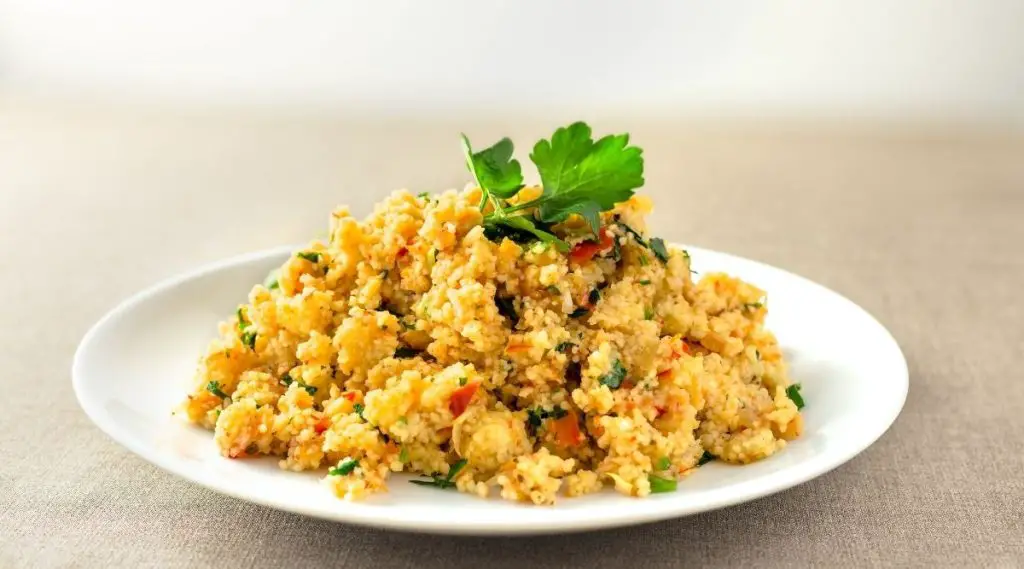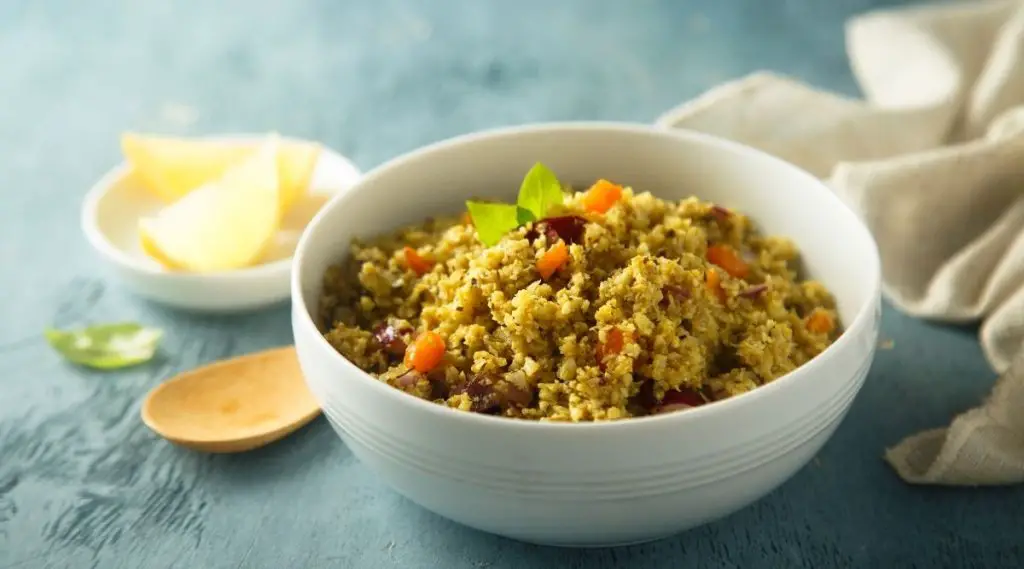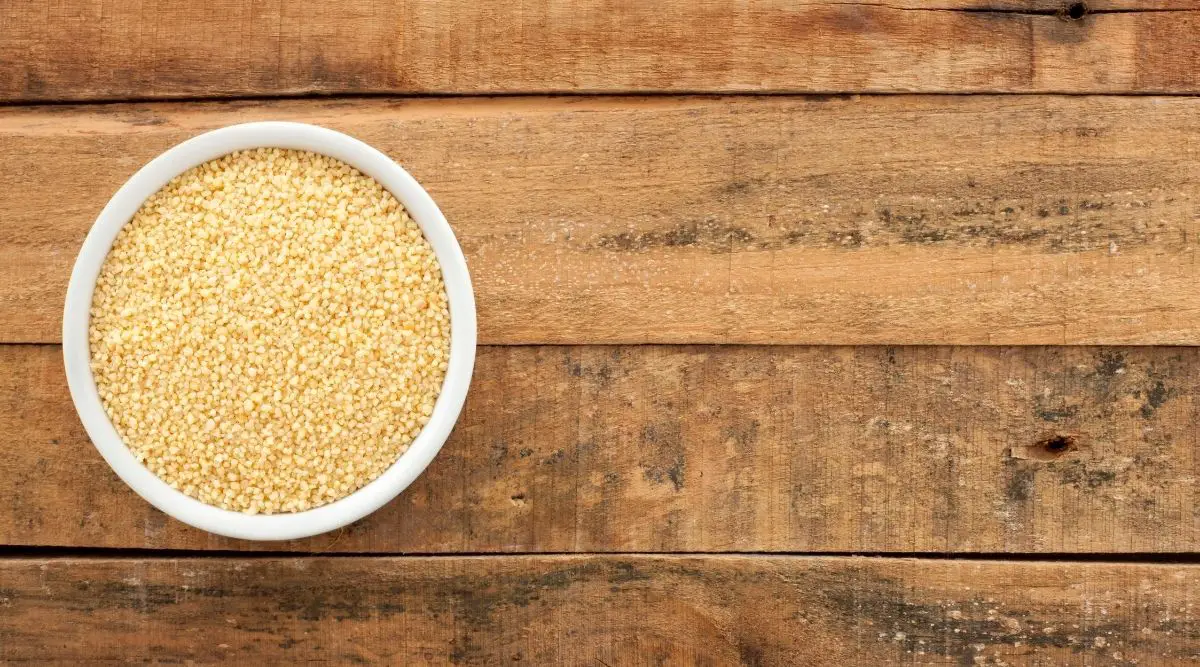The ketogenic diet is a low-carb, high-fat diet that allows your body to burn fat as opposed to carbs for energy through a process known as ketosis.
However, if you’re new to the ketogenic diet, you might be interested to learn: Is couscous keto?
In this article, I will provide you with some key information on consuming couscous on a ketogenic diet, including whether couscous is keto.
Without further ado, let’s begin.
If you consume too many carbohydrates on the ketogenic diet, your body will no longer be in ketosis.
Instead of burning the fat like it’s supposed to, the high level of carbs will mean that your body is instead using carbs for energy.

When it comes to weight loss, this is the opposite of what you’re aiming for. Bearing this in mind, staying on track is important to ensure that your body remains in ketosis and that the diet is working as effectively as it should be.
What Is Couscous?
Couscous is a processed grain that is usually made from semolina flour or durum wheat.
As a staple food in a variety of Moroccan and Middle Eastern dishes, couscous provides important micronutrients such as manganese, thiamine, pantothenic acid, and copper.
It is a highly versatile side dish and is often served as an accompaniment to anything from lamb tagine, to chicken.
That being said, couscous doesn’t just work on the side of meat dishes, as it is highly popular as a side dish for a variety of vegetable dishes, too.
Although you can eat couscous as it is once cooked, it is often served with a variety of different herbs and spices in order to give it more flavor.
These can include chopped parsley, mint, cilantro, and basil. The various recipes out there are a testament to the fact that a sprinkling of lemon or lime juice and zest are also excellent ingredients to lift the dish, as, without these additions, couscous can be fairly bland.
Is Couscous Keto?
In short, couscous is not keto. Grains are often perceived as off-limits when it comes to the ketogenic diet.
This is because strict ketogenic diets limit a dieter’s carb intake to less than 50 grams per day, which can make it challenging to fit any grains into your daily allowance.
Many people that follow a strict keto diet believe that the nutritional value of couscous is not conducive to a keto diet.
This comes down to the fact that couscous is both relatively high in carbs and low in fats, which are the exact opposite of the macros required on a keto diet.
Couscous contains around 34.5 grams of net carbs per cooked cup. As a result, eating couscous could result in a spike in blood sugar, making it unsuitable for those on a keto diet as well as individuals that have diabetes.
Couscous is one of many foods that aren’t suitable for the ketogenic diet.
You want to ensure that your diet is balanced, and using a lot of your carb intake in one meal to eat couscous is not a sensible idea when you’re following this diet.
Reasons To Avoid Couscous On A Ketogenic Diet
There are a variety of reasons to avoid couscous on a ketogenic diet.
Namely, couscous is relatively high in carbohydrates, and someone on a ketogenic diet is already limited to 50 grams of carbs per day.
If you eat all of your carb intake in one meal, it could result in your body leaving ketosis, which is one of the main reasons that people follow the diet in the first place!
Couscous is also low in fat. The point of a ketogenic diet is to follow a low-carb, high-fat diet.
As couscous is considered a low-fat food, there is little to no benefit in eating it, as not only will you be consuming too many carbs in one meal, but you won’t be getting enough fat in that meal either.
Couscous has an estimated glycemic index of 65, making it a food that can result in a spike in your blood sugar.
This is why diabetics are often steered away from couscous and are instead better off finding a lower glycemic index alternative.
Ketogenic Alternatives To Couscous
It can easily feel overwhelming when you begin a new diet and have to give up a lot of the foods that you would normally eat.
However, the easiest way to stay on track is to find alternatives that still allow you to remain in ketosis!
If you’re looking for an alternative to couscous when you’re on a ketogenic diet, cauliflower is a great option.
Cauliflower “couscous” is a low-carb, all-natural substitute for couscous that works as an accompaniment to a huge variety of dishes!
Cauliflower “Couscous” Recipe

Ingredients
- 1 head of cauliflower, broken into florets
- ½ cup of water
- 1 teaspoon of salt
- Lemon zest
- Rosemary
Instructions
Step One – To begin, you will first need to break your cauliflower head up into small florets.
Step Two – Next, you will need to place your cauliflower florets into a food processor and use the pulse function. Pulse several times until it resembles traditional couscous
Step Three – Next, you will need to grab a pan. Add just enough water to cover the bottom of the pan.
Step Four – Add salt, lemon zest, and rosemary to the pan and bring it to a simmer.
Step Five – Next, you will need to add the ground cauliflower to the pot, ensuring that it is spread out in an even layer. Allow the pan to come to a simmer, then reduce the heat to the lowest setting.
Step Six – Cover the pan and allow the cauliflower to cook for around 5 minutes, and you’ll be left with a beautiful fluffy texture that resembles couscous!
If you don’t like cauliflower, another alternative to couscous is zucchini noodles! Zucchini noodles provide you with a similar hearty eating experience to pasta, without the carbs! It’s a win-win!
In Summary
Couscous is not keto as it is both high in carbs and low in fats, which is the exact opposite of what someone following a ketogenic diet requires.
If you’re looking for a ketogenic alternative to couscous, then I highly recommend that you try cauliflower “couscous,” as this can provide a similar texture without the carbs.




